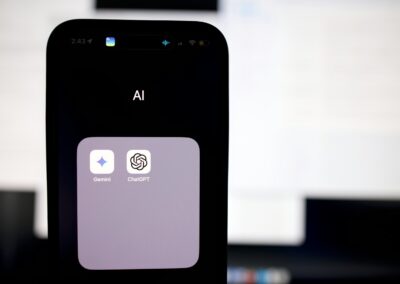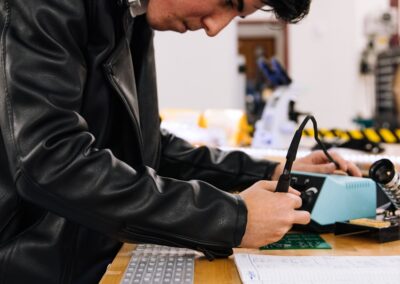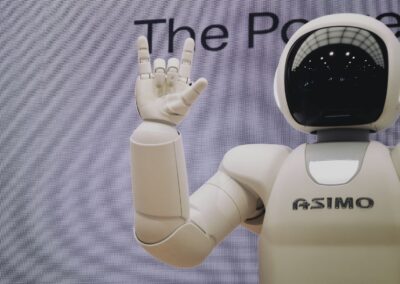Enhancing Accessibility and Inclusivity through Advanced Technologies
Introduction to AI-Personalized Learning
AI-personalized learning for students with disabilities represents a significant advancement in the field of educational technology, promising to transform the educational landscape by providing tailored support and accommodations. Artificial Intelligence (AI) has the potential to create highly customized learning experiences that address the unique needs of each student, ensuring that all learners, regardless of their abilities, have access to high-quality education. This innovative approach is particularly relevant in regions like Saudi Arabia and the UAE, where there is a strong emphasis on leveraging technology to enhance educational outcomes.
In Saudi Arabia, the Vision 2030 initiative underscores the importance of inclusive education, aiming to provide equitable learning opportunities for all students. Similarly, the UAE’s strategic focus on innovation in education seeks to create an environment that supports diverse learners. By integrating AI into educational practices, these regions can ensure that students with disabilities receive the necessary support to succeed academically and personally.
AI-driven personalized learning systems utilize data and algorithms to adapt instructional content, pace, and methods to each student’s needs. This technology can identify learning patterns, predict challenges, and provide real-time feedback, enabling educators to offer targeted interventions. As a result, students with disabilities can experience a more engaging, supportive, and effective learning journey.
Implementing AI for Personalized Learning
The implementation of AI-personalized learning involves several key components, including data collection, algorithm development, and the integration of AI tools into the educational framework. In Saudi Arabia, educational institutions are increasingly adopting AI technologies to enhance learning experiences. For instance, schools are utilizing AI-powered platforms that monitor students’ progress, identify learning gaps, and suggest personalized resources and activities.
In the UAE, similar initiatives are underway to incorporate AI into the education system. Universities and schools are leveraging AI to develop adaptive learning environments that cater to the needs of students with disabilities. These AI-driven platforms can adjust the difficulty level of tasks, provide alternative instructional materials, and offer customized feedback, ensuring that all students can achieve their full potential.
Moreover, AI can facilitate the creation of inclusive classrooms by offering tools that support various disabilities. For example, speech recognition technology can assist students with hearing impairments, while text-to-speech software can aid those with visual impairments. AI can also help in developing individualized education plans (IEPs) that outline specific goals, accommodations, and strategies tailored to each student’s needs. By integrating these tools, educators in Riyadh, Dubai, and other parts of the region can create a more inclusive and supportive learning environment.
Benefits of AI-Personalized Learning for Students with Disabilities
AI-personalized learning offers numerous benefits for students with disabilities, enhancing their educational experiences and outcomes. One of the primary advantages is the ability to provide real-time support and accommodations. AI systems can continuously monitor students’ progress, identify when they are struggling, and offer immediate assistance. This proactive approach ensures that students receive the help they need when they need it, preventing frustration and promoting a positive learning experience.
In Saudi Arabia, schools are witnessing the positive impact of AI-personalized learning on student engagement and achievement. By providing tailored resources and activities, AI helps students stay motivated and focused. This personalized approach also allows students to learn at their own pace, ensuring that they fully understand each concept before moving on to the next. As a result, students with disabilities can experience a sense of accomplishment and confidence in their abilities.
Similarly, in the UAE, educational institutions are reporting improved outcomes for students with disabilities who are engaged in AI-personalized learning programs. These programs help students develop essential skills, such as critical thinking and problem-solving, by presenting content in ways that are accessible and engaging. Additionally, AI can support social-emotional learning by providing tools that help students manage their emotions, build relationships, and develop resilience.
Furthermore, AI-personalized learning can facilitate better communication and collaboration between educators, students, and parents. AI systems can generate detailed reports on students’ progress, strengths, and areas for improvement, enabling educators to make informed decisions about instructional strategies. Parents can also receive regular updates on their child’s performance, allowing them to be more involved in their education. This collaborative approach ensures that students with disabilities receive comprehensive support from all stakeholders.
Challenges and Solutions in AI-Personalized Learning
While the benefits of AI-personalized learning are significant, there are also challenges that need to be addressed to ensure its successful implementation. One of the primary challenges is the digital divide, which refers to the gap between those who have access to technology and those who do not. In regions like Saudi Arabia and the UAE, efforts are being made to bridge this gap by investing in digital infrastructure and providing access to devices and internet connectivity for all students.
Another challenge is ensuring that AI systems are designed with inclusivity in mind. This means that AI algorithms must be trained on diverse datasets that represent the wide range of abilities and needs of students with disabilities. By collaborating with experts in special education and disability advocacy, developers can create AI tools that are sensitive to the unique challenges faced by these students. This approach ensures that AI systems provide accurate and effective support.
Additionally, there is a need for ongoing professional development for educators to effectively integrate AI-personalized learning into their teaching practices. In Riyadh and Dubai, training programs are being developed to help educators understand how to use AI tools, interpret data, and implement personalized learning strategies. By equipping educators with the necessary skills and knowledge, schools can maximize the benefits of AI-personalized learning for students with disabilities.
The Future of AI-Personalized Learning and Digital Equity
The future of AI-personalized learning holds immense potential for enhancing digital equity and providing high-quality education for all students. As technology continues to advance, AI systems will become more sophisticated, offering even more personalized and effective learning experiences. By addressing the challenges and leveraging the benefits of AI, educational institutions in Saudi Arabia and the UAE can create an inclusive and supportive learning environment for students with disabilities.
In Saudi Arabia, the Vision 2030 initiative will continue to drive innovation in education, ensuring that all students have access to the tools and resources they need to succeed. By integrating AI into the education system, Saudi Arabia can create a more equitable and inclusive learning environment that supports the diverse needs of its students. Similarly, the UAE’s strategic focus on educational technology will facilitate the adoption of AI-personalized learning, ensuring that all students have the opportunity to thrive academically and personally.
Conclusion: Embracing AI for Inclusive Education
In conclusion, AI-personalized learning offers a transformative approach to education, providing tailored support and accommodations for students with disabilities. By leveraging AI technology, educational institutions can create engaging and effective learning experiences that address the unique needs of each student. The successful implementation of AI-personalized learning requires addressing challenges such as the digital divide, inclusivity in AI design, and professional development for educators. As regions like Saudi Arabia and the UAE continue to embrace digital transformation, the adoption of AI-personalized learning will play a crucial role in achieving digital equity and ensuring that all students have access to high-quality education.
—
#AIPersonalizedLearning #DigitalEquity #HighQualityEducation #EducationalTechnology #ArtificialIntelligence #SaudiArabia #UAE #Riyadh #Dubai #BusinessSuccess #LeadershipSkills #ProjectManagement























